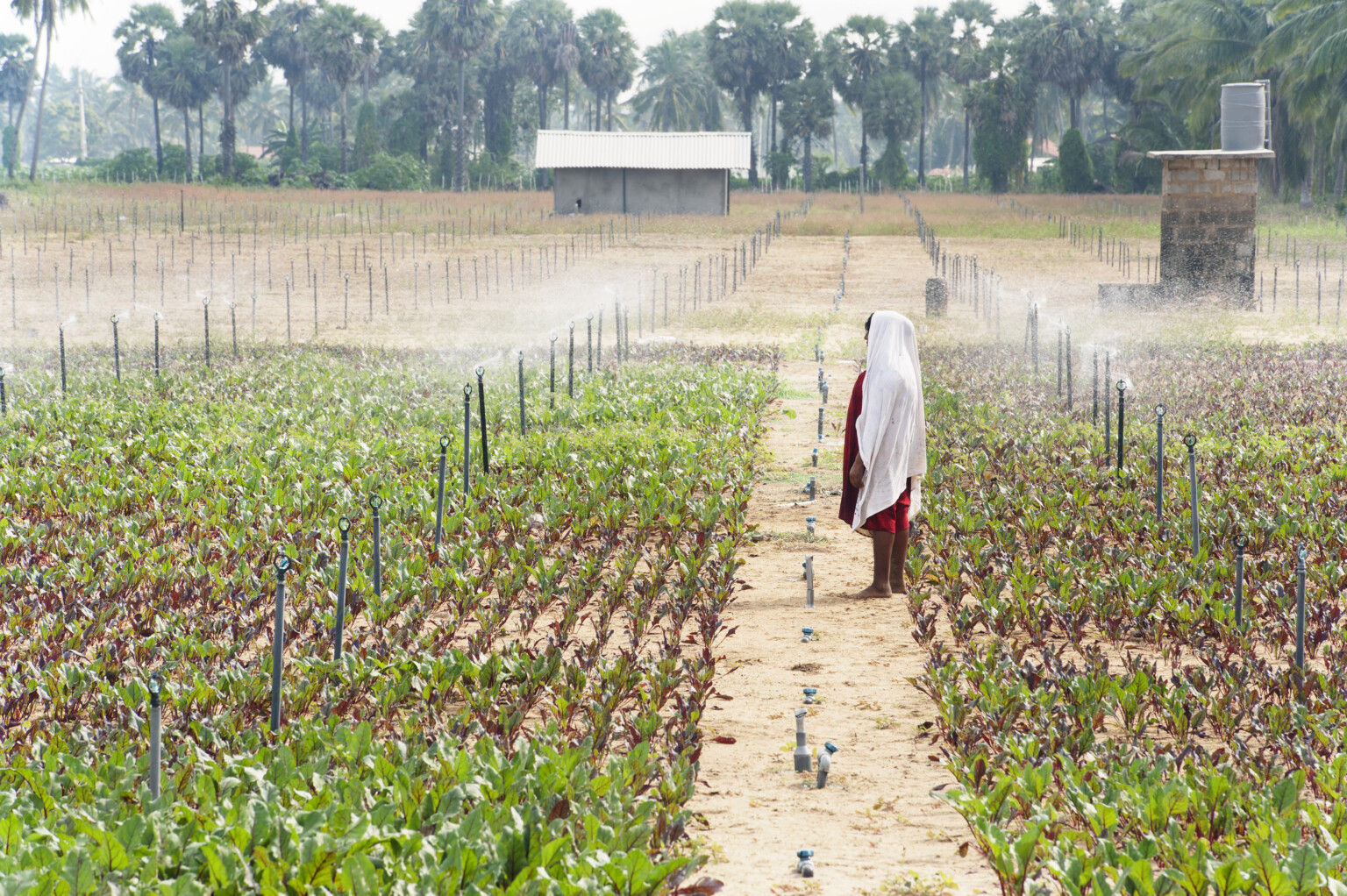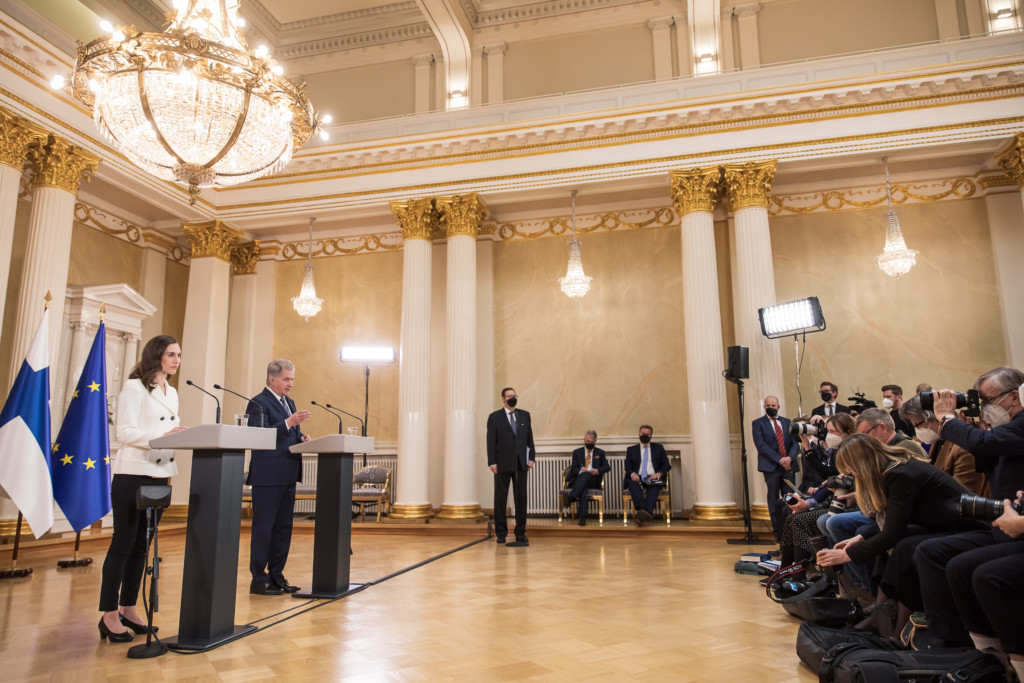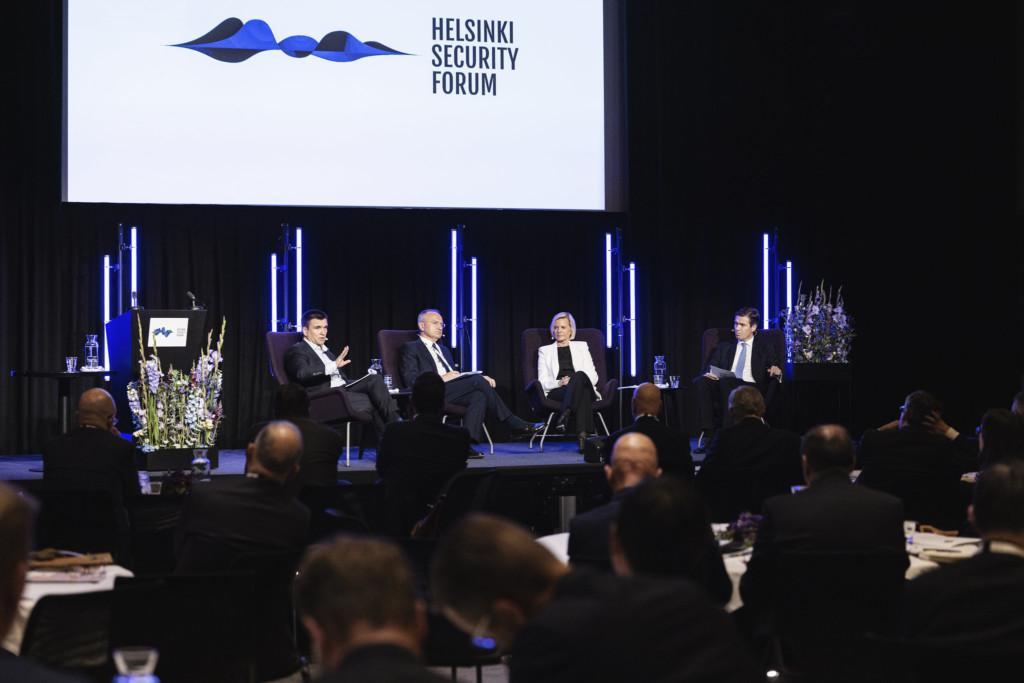Publications

New Technologies Reshape the Geopolitics of Water and Climate
New technologies and innovations are affecting every aspect of our lives. Intentional or not, big tech and other major technology developers are entering the geopolitical arena by providing data, information, or tools that are impacting decisions that can affect – positively or negatively –international affairs. This begs the question: how will innovation and technological development affect our capacity to respond to major global crises such as climate change and water insecurity?
The geopolitical landscape of water and climate is changing due to innovation and technological evolution. Our ability to measure, model, and forecast is more advanced than it has ever been, but it may surpass our capacity for absorption or adaptation. There is a critical need to understand how innovation is changing the way we interact on shared waters and climate-related challenges. Climate risks and hazards transcendent national and administrative borders creating transboundary climate risks. Effective cooperation across sectors and borders is thus necessary to find solutions to these challenges.
There is a critical need to understand how innovation is changing the way we interact on shared waters and climate-related challenges.
New technologies help us understand the realities of climate crisis: how much water we have and will have in the future in shared freshwater basins, and how different regions are and will be affected by the impacts of climate change. For example, research shows that parts of the Middle East and the Mediterranean will be inhabitable by the end of this century due to human influence, with average temperatures nearing 50 degrees Celsius. Inequalities will grow as wealthier countries in the region, like the Gulf countries, will adapt more easily to the changing climate landscape. In contrast, conflict-affected and fragile countries will not be able to use new technologies available in the global arena as effectively.
Earth observation satellites and other programs offer the potential to regularly monitor water events around the world. This could include, for example, monitoring of the filling and operations of the Grand Ethiopian Renaissance Dam (GERD) in Ethiopia – providing objective information that could be used by decision makers and strengthening negotiations on the management of the dam between Egypt, Sudan and Ethiopia. Mechanisms for sharing real time data can play a positive role in designing early warning systems. In basins that are not challenged by geopolitical tensions, implementation of new technologies is hindered by financial constraints.
All these factors shape the political environment and power dynamics around shared waters. They will add stress to those areas of the world already struggling to adapt to climate change, the energy transition, and broader environmental, economic, and security concerns.
Water and climate-related disinformation as a security risk
New technology also brings changes in the way how we communicate about global issues at different levels, including our communication on escalating climate and water crisis. While new technology brings opportunities for faster connection on early warning systems, for example, it also brings several negative effects. One of them is the spread of information influence campaigns, including misinformation and disinformation about the cause and impacts of climate change and the causes of water insecurity. There are examples of disinformation campaigns exacerbating water disputes between countries, such as with India and Nepal during their GERN negotiations. Similarly, disinformation campaigns were used in the case of heavily contaminated waters in Ukraine and misleading posts and fabricated videos downplaying the recent floods disaster in Libya.
There is a growing number of political parties in different EU member states that have built their political agenda around climate denial.
While majority of the EU population believes climate change can be at least partly attributed to human activity, there is a growing number of political parties in different EU member states that have built their political agenda around climate denial. Scientific reports are disregarded by various anti-climate campaigns which in several EU countries impact the public opinion and the political will to implement necessary adaptation and mitigation policies.
The United States and Indonesia have the highest numbers of climate deniers: 21% of the Indonesian population and 19% of the US inhabitants do not believe that climate change is man-made. In general, government officials often lack understanding of algorithmic thinking to effectively address these challenges related to digital technology and social media. The inability of governments to effectively respond, manage, and resolve climate crisis is a security risk.
Our inability to manage information, distinguish fact from fiction and misinformation from disinformation can reshape the political landscape surrounding transboundary water disputes and energy transformation issues. The technology divide is likely to grow and generate greater inequalities regarding the access and use of information, particularly in fragile and conflict-affected regions.
Connecting new technologies, climate security and geopolitics
In recent years, artificial intelligence (AI) and digital solutions have increasingly become a tool for mitigating climate change and increasing the capacity to cope with and adapt to the adverse effects of climate change. The ability to manage complex data and perform more detailed analysis can help optimise solutions in different contexts and scale up local innovations. In climate change mitigation, AI can be used to increase energy efficiency and to provide decision-makers with explicit data. AI can also be used to develop better weather forecasting and modeling to better prepare for and respond to weather events via early warning systems – and thus prevent violence or conflict in fragile settings further eroded by the impacts of climate change.
Improved analytical capacity will help governments and international organisations address situations where insecurity is perpetuated through complex inter-linkages such as those between climate, water, livelihoods, and governance. For example, CGIAR has developed a Climate Security Observatory, which is an online platform to facilitate stakeholder decision-making. It provides comprehensive understanding of climate-related risks by aggregating and analysing global data through climate, environmental, peace, security, and socioeconomic indicators.
There are signs that the geoeconomic rivalry between the US and China is reflected in renewable energy production and other crucial fields of the green transition.
New technology and innovation can, however, also be used to feed competition between countries, in particular global superpowers. There already are signs that the geoeconomic rivalry between the US and China is reflected in renewable energy production and other crucial fields of the green transition. During the past year, China has set several export restrictions on critical materials needed for solar power production and electric vehicles, while the US has restricted its exports of microchips. Especially in the longer run, these actions can slow down the global push for green transition, not to mention adding to geopolitical tensions.
What can be done? Policy recommendations
Innovation and new technological opportunities can be used for better access to data – measuring, mapping, and forecasting. External actors can play a role in supporting fragile and conflict-affected countries with capacity development to advance their adaptation and absorption capabilities.
Widespread influence campaigns in the forms of disinformation, misinformation and deep fakes undermine the ability of national governments to effectively address issues related to climate change and implementation of necessary adaptation and mitigation policies. Lessons from studies on climate and security nexus show that our failure to deliver on climate commitments can have security implications. Examples are already evident in different parts of the Middle East, Horn of Africa, and Sub-Saharan Africa.
Securitisation of climate change and the use of AI needs further research. Insights are needed on the geopolitical climate security perspectives including the impacts, aims, uses, risks and opportunities related to, and the actors involved in the use of AI.
Lessons from studies on climate and security nexus show that our failure to deliver on climate commitments can have security implications.
The geopolitical impacts of technology and innovation in the climate and water space are becoming increasingly clear. It is important that we deliberatively move forward and work together to ensure that new data, information, and tools are thoughtfully introduced and managed and that we put the proper safeguards in place to reduce the mis- and disuse of these technologies. Done right, we might rapidly accelerate our efforts to provide a more water secure, resilient, and peaceful world. We each have a role to play. It’s time we step up.
Martina Klimes is Advisor for Water and Peace at the Stockholm International Water Institute and a member of the Scientific Program Committee of the World Water Week
Emma Hakala is a Leading Researcher at the Finnish Institute of International Affairs
Saara Leppänen is a Researcher at Finnish Meteorological Institute and a PhD candidate, Doctoral Programme in Political, Societal and Regional Change at the University of Helsinki
Aaron Salzberg is Director of the Water Institute, Gillings School of Global Public Health, University of North Carolina at Chapel Hill and a member of the Scientific Program Committee of the World Water Week

for HSF Blog
The decisive role of geography in Finland’s (future) NATO policy
“The main driver of Finland’s NATO policy – the set of interests, objectives, and tasks it pursues in the alliance...

Biden Administration’s Strategy Depicts a Willingness to Lead and Places Emphasis on Partners
The United States has a new National Security Strategy. It reasserts Washington’s leading power role while focusing more on domestic…

Helsinki Security Forum 2022 has come to a close
The inaugural Helsinki Security Forum has come to a close. The event brought together decision-makers and experts to address pressing…
About the author
Martina Klimes, Emma Hakala, Saara Leppänen and Aaron Salzberg
Martina Klimes is Advisor for Water and Peace at SIWI and a member of the Scientific Programme Committee (SPC) of the World Water Week. She has over 15 years of experience working with dialogue facilitation, conflict resolution, political and security analysis, including practical work in the field and informal diplomacy processes.
Her main focus is on water diplomacy and water cooperation, climate and security, dialogue facilitation, incentives, and third-party involvement in negotiation processes.
Emma Hakala is a Leading Researcher at the Finnish Institute of International Affairs. Her research focuses on environmental security and the geopolitics of climate change, such as the role of international actors in building climate security practices. She leads the project “Climate change and Finland’s security of supply” and a part on conflict analysis in the project “Water Cooperation and Peace – Finnish Water Way”, which FIIA implements as a partner of the Finnish Environment Institute (SYKE).
Saara Leppänen is a Researcher at Finnish Meteorological Institute and a PhD candidate, Doctoral Programme in Political, Societal and Regional Change at the University of Helsinki
Aaron Salzberg is the Director of the Water Institute, Gillings School of Global Public Health, University of North Carolina at Chapel Hill and a member of the Scientific Program Committee of the World Water Week. Dr. Salzberg has held a number of positions within the US government including serving as the first Special Coordinator for Water at the U.S. Department of State where he led the development and implementation of US foreign policy on drinking water and sanitation, water resources management, and transboundary water issues.